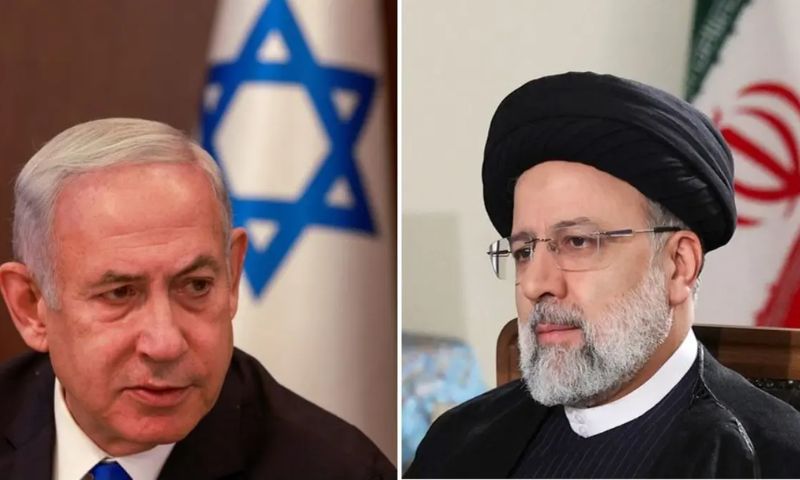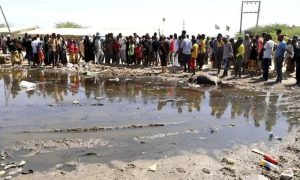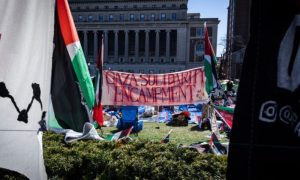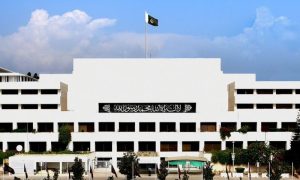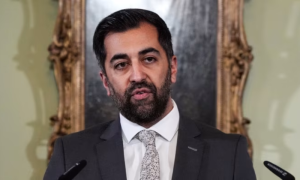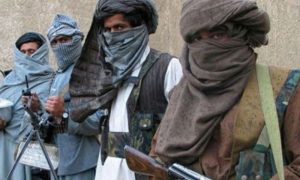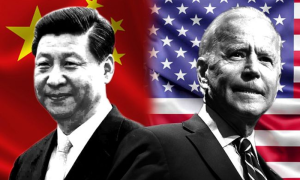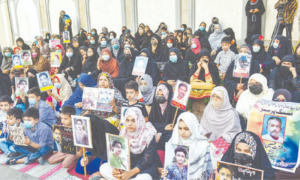JERUSALEM: As the Gaza conflict rages on with no end in sight, Israel and Iran Tuesday exchanged threats after Tehran’s first direct attack on its arch-rival, sharply escalating tensions in the region.
Israeli military spokesman Rear Admiral Daniel Hagari said Iran would not get off “scot-free” after it fired more than 300 missiles, drones and rockets at Israel over the weekend.
He said they couldn’t stand by and watch those kinds of attacks, a day after Israel’s military chief vowed to respond to Iran’s attacks.
Iran said the attack was an act of self-defence after a deadly Israeli airstrike on its consulate in Syria, and that it would consider the matter “closed” if Israel did not retaliate.
Iran’s President Ebrahim Raisi warned that the smallest action against Iran’s interests will definitely be met with sharp, extensive and painful responses.
Meanwhile, US President Joe Biden has emphasized that the United States is fully committed to the security of Israel and wants to prevent the escalation of the conflict.
Washington, Israel’s biggest ally and arms supplier, has made it clear that it will not join Israel in any attack against their common enemy, Iran, a senior US official said.
World leaders have called for restraint and de-escalation.
According to the Kremlin, in a telephone conversation with Raisi, his Iranian counterpart, Russian President Vladimir Putin called on the two countries to avoid new confrontations that would have devastating consequences for the entire region.
British Prime Minister Rishi Sunak warned Israeli Prime Minister Benjamin Netanyahu against escalating tensions, saying it was time for calm thinking to prevail.
Israel has continued to target the Gaza Strip, the Hamas-controlled coastal enclave that has devastated its 2.4 million people in more than six months of war and siege.
Since the Iranian attack, Israeli leader Netanyahu has twice convened his war cabinet, set up after Hamas launched the October 7 attack that sparked the bloodiest ever war in Gaza Strip.
Israel is weighing its options after the Iranian drone and missile attack, which caused little damage as Israeli defences intercepted most projectiles. The US, British and French forces as well as regional allies also helped Israel in the same.
It is still unclear when Israel might strike and whether it would target Iran directly or attack its interests or allies abroad in Lebanon, Syria, Iraq and Yemen.
Iran-backed armed groups across the region have carried out attacks on Israel since the war broke out.
Hezbollah has been trading regular cross-border fire with Israel since October and in a fresh attack, it struck with two explosive drones near a northern Israeli town on Tuesday, which, according to the local council, wounded three people.
Also on Tuesday, a local Hezbollah commander was killed in an Israeli strike in southern Lebanon, according to a source close to the group and the Israeli military. Hezbollah later said two more of its fighters had been killed, while its ally the Amal movement also announced one dead.
Hezbollah, however, said it launched rockets at Israel in response.
Israel on Monday for the first time official commented on the April 1 Damascus strike that killed seven Iranian Revolutionary Guards including two generals.
“These were people who engaged in terrorism against the State of Israel,” Hagari said.
On Tuesday, Netanyahu told new army recruits that Israeli troops were fighting Hamas fighters “without mercy”.
Talks for a truce appear to be stuck after the latest proposal did not get Hamas nod.









